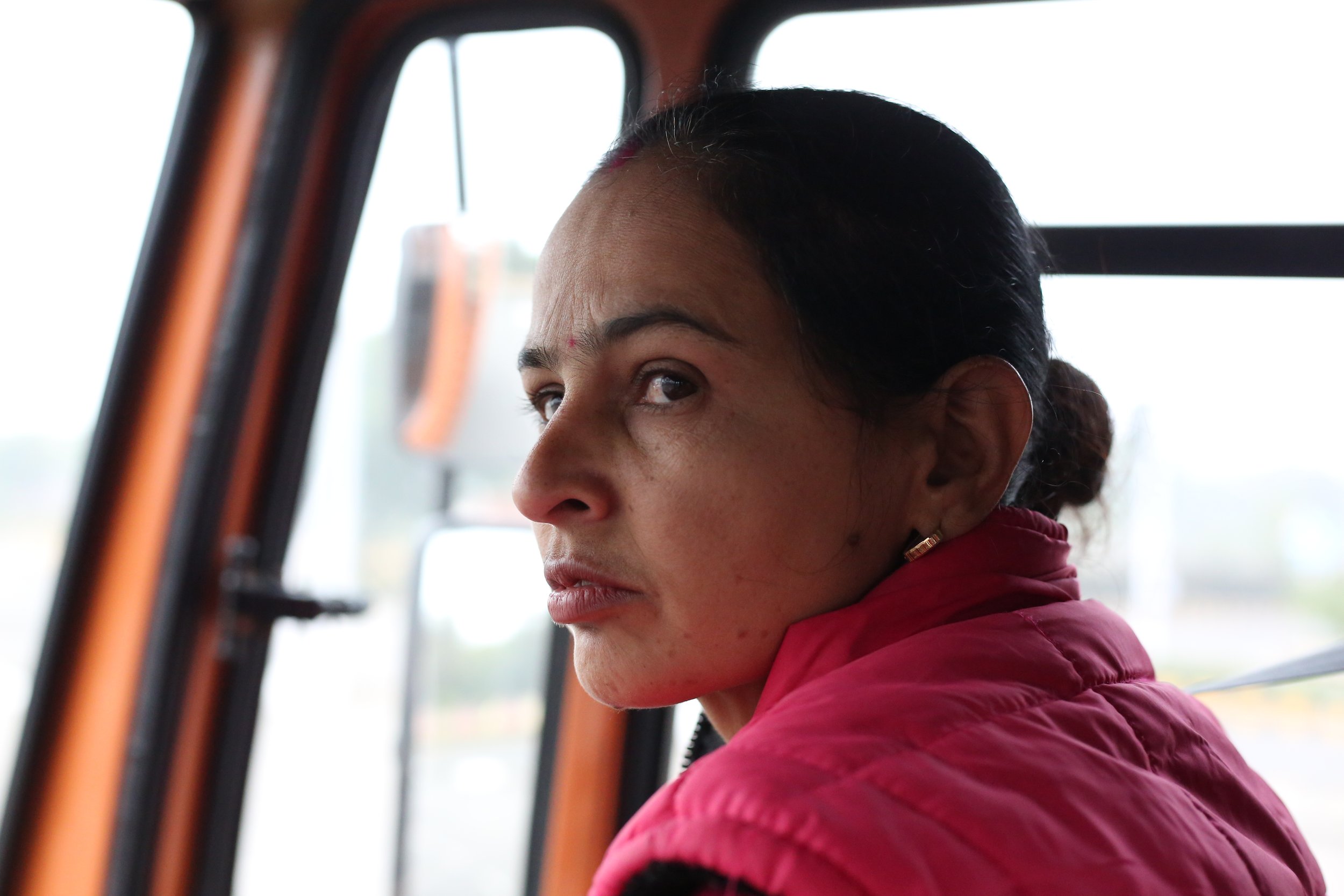Found in translation
By Anna Pearson
Sonia and I locked eyes as hers welled up with tears.
Her gaze bounced between my encouraging head nods and Rafi’s mumbling chorus of “achha” and “theek hai” as he took in everything she was saying, ready to give me a rough translation from Haryanvi to English.
Moments after laughing about how stupid I looked attempting to balance a matka on my head the day before — and breaking it — Sonia had asked Rafi if Merrina and I would like to hear the “saddest parts” of her life.
I felt a wave of compassion in my chest, hurting for this seemingly impenetrable woman who was holding back so much brokenness under her tough skin. Sonia had let us into her home over and over again with steaming chai and strong opinions to share, and I realized that we had cracked the surface as she wiped tears off of her cheek — she was now letting us into her heart.
Sonia continued on to tell us about her brother getting in with the wrong crowd and how it cost him jail time. Her husband, who treats her with no respect, and her sons, who model their behavior after their father because they are too young to remember when their mother left him for three years because of their arguments.
As she tried to hold in the tears through her words, a ringtone sounded on the phone in her lap, but she went on finishing her sentence and wiping her eyes. Her youngest son ran over to her chair after just scrolling through Instagram reels on her phone a few minutes before, yelling something in Haryanvi that I knew meant something along the lines of “Answer your phone, answer your phone!”
Eye contact broke as Sonia snapped into business mode, the wavering in her voice from a second before gone as she answered with a quick “Hello?”
I could see Sonia’s softness disappear under a mask once again. Her gaze shifted to the ground as she animatedly spoke in Haryanvi, and I looked around at the yellow walls of her house, framed with bright floral curtains and colorful tassels hanging above the door beside me.
Sonia’s home was always busy — each time we were there for an interview, countless interruptions delayed my growing list of questions. Somewhere was a growing collection of photos of our team with various friends and family members of Sonia’s. I often felt helpless when there was a chorus of voices surrounding me in a language I didn’t understand. I could barely even make the correct pronunciation of syllables (thank you, Rafi, for attempting to teach us).
From our team’s first interview in Haryana, not understanding the language made me feel like I was being left out of an inside joke, forced to nod along with our sources’ words and wait for Rafi to give a translation summary. The innate awkwardness of looking at him and saying something along the lines of “Can you tell her . . .” made me feel less like a journalist and more like a shy 6-year-old waiting for their parents to order for them at a restaurant.
Throughout everything, eye contact helped me grow more confident — in the middle of dance circles, sharing hot chai and in conversations — when I could understand emotions without needing to know the words.
We were continuously met with so much warmth and kindness, and I hoped to be able to communicate my gratitude through a look to break the language barrier. I saw so much behind Sonia’s eyes, bright but always searching for more. I knew that this was about so much more than just connecting with my sources as a journalist. It was about seeing them, and allowing them to see me too.

